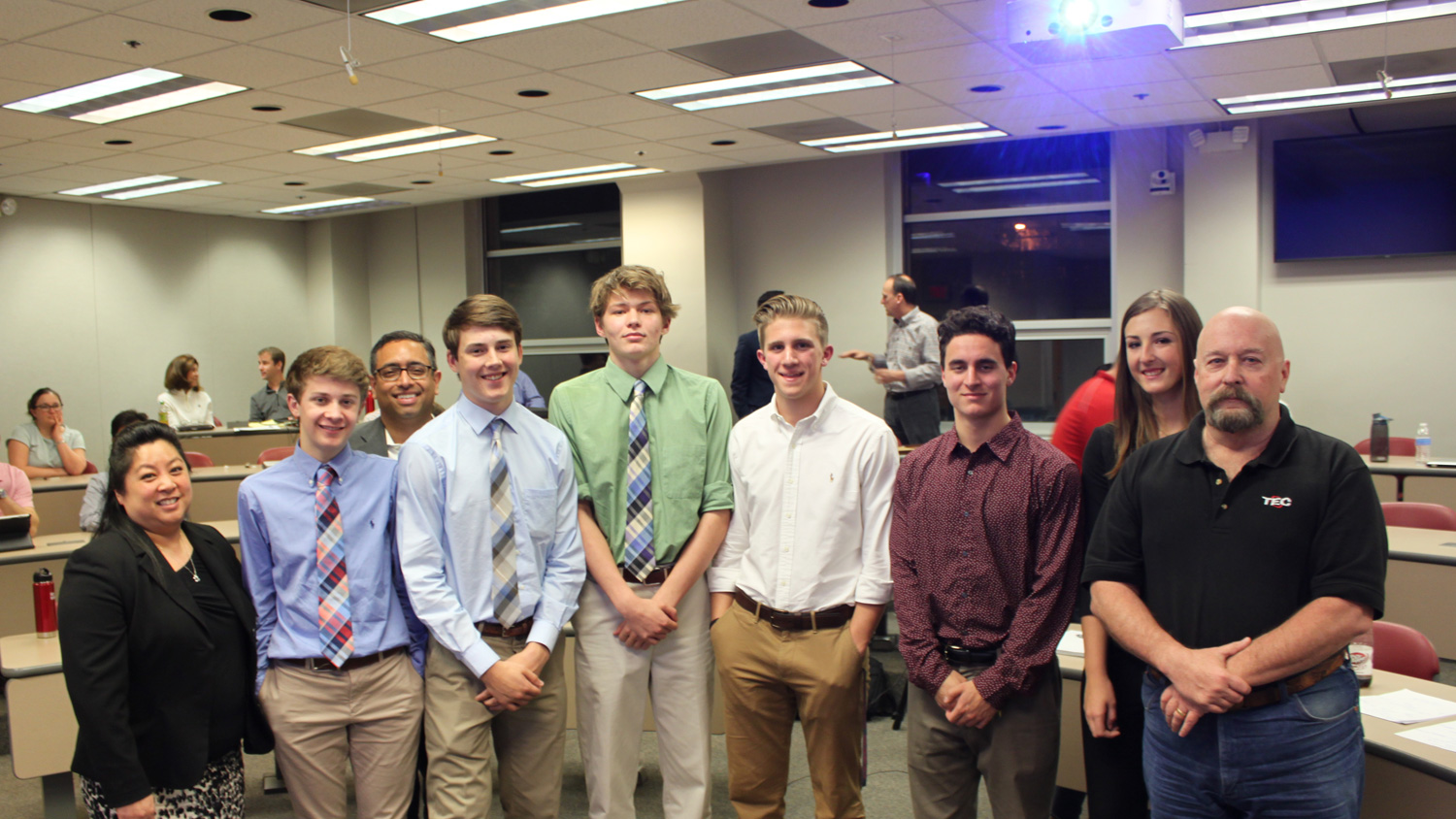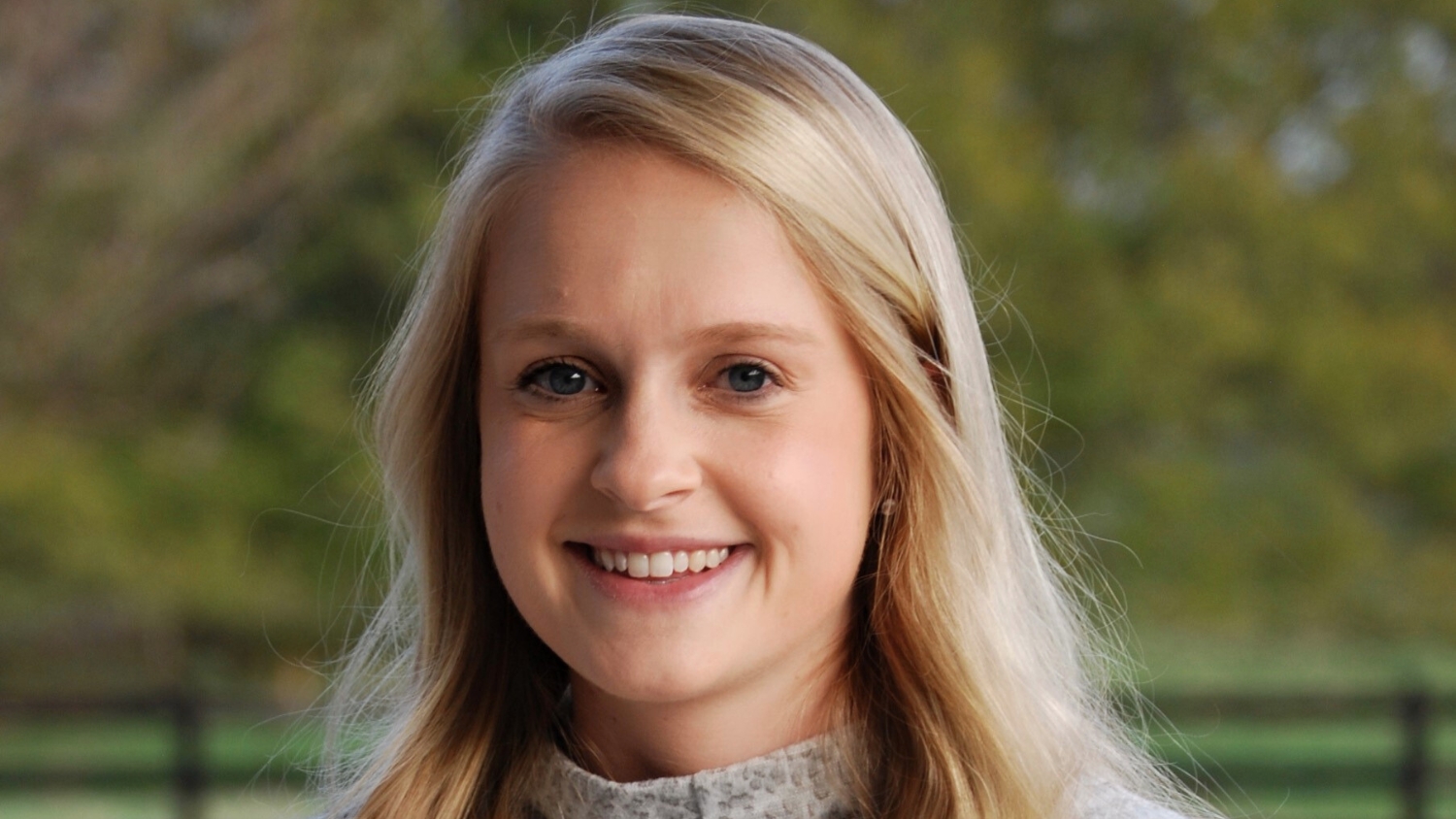Apex Friendship High School Students Benefit from Entrepreneurship Program modeled after NC State Poole College’s TEC Curriculum

For the past academic year, Dan Jackson, a business educator at the new Apex Friendship High School, and faculty leading the technology, entrepreneurship and commercialization (TEC) program in the NC State Poole College of Management’s Jenkins MBA program have been collaborating “to create a unique and authentic high school entrepreneurship education program,” Jackson said.
He has served as an educator-in-residence for TEC, attending Wednesday evening course sessions and as mentor for teams of graduate students in the MBA course.
Jackson has been bringing insight and curriculum ideas from the graduate program to his students at Apex Friendship where he is prototyping an entrepreneurship program, Applied Synergies Partnership, as part of a business curriculum for the two-year-old school. The name, Jackson said, “suggests the enhanced impact for students, higher learning and industry when the three work in concert to develop critical non-technical skills.”
A conversation with a colleague about his goals for the new high school’s business curriculum led Jackson to an introduction to Raj Narayan, associate director of the Kenan Institute for Engineering, Technology & Science at NC State. Narayan focuses on the commercialization of technology and technology-based economic development programs and is involved with initiatives to enable cutting edge K-12 science, technology, engineering, and math education, among other science and technology roles.
Narayan knows the Jenkins MBA program’s TEC curriculum well, as that was his concentration when he was a graduate management student at the college. For Jackson, the curriculum provided an opportunity to build on the project-based approach he had used when teaching business and marketing at a previouis school.
Innovation Coaches Nurture Ingenuity, Foster Business Acumen
The Apex Friendship High School course, modeled after the Jenkins MBA’s TEC curriculum, also includes industry coaches, managers and entrepreneurs who work with the high school students as they build their non-technical skills and complete their business plans.
Jackson said he “saw the benefits for students to have industry leaders as mentors in the classroom, similar to TEC’s executive coaches.” He coined the term “Innovation Coaches” to symbolize the relationship between the students’ desire to develop new and exciting products with the help of experienced adults. “
The role of an innovation coach,” he said, “is to facilitate authentic experiences beyond typical curriculum. The purpose of these events is to help guide students’ curiosity, initiative, imagination and creativity, and to develop collaborative and analytical competencies that will help grow student’s personal and professional potential.
“The Triangle area’s businesses were more than willing to help develop young people’s entrepreneurial minds,” Jackson said. “Sixteen innovation coaches met with their teams regularly to help facilitate team dynamics, communication skills and entrepreneurial discovery.”
Jackson said he also saw the benefit for students to discover the Triangle’s thriving entrepreneurial environment, and organized a field trip for 40 high school business students to HQ Raleigh, a co-work space on the edge of downtown Raleigh that is home to area startups and the NC State Entrepreneurship Clinic, part of Poole College’s entrepreneurship curriculum. Lewis Sheats, senior lecturer and director of the Clinic, and several of his students gave a presentation to the high school group.
In addition, Steve Barr, professor of technology entrepreneurship and commercialization at Poole College, and Lisa Chang, director of technology entrepreneurship and commercialization at the college, met with Jacksons’ students at Apex Friendship, helping with them with ideation and venture creation.
The high school course, modeled after the Jenkins MBA curriculum, now also includes industry coaches, entrepreneurs who work with the high school students as they build their non-technical skills and complete their business plans.
Helping Students Advance Entrepreneurial Ideas
The mix of students in his classroom in the ASaP classroom is similar to the mix in the entrepreneurship curriculum at Poole College.
“I have students from all different pathways: health sciences, fashion, programming, robotics, advanced manufacturing. They may have ideas from their disciplines and wanted to bring those to market,” he said. Poole College’s graduate and undergraduate entrepreneurship programs similarly draw students from various disciplines within NC State’s 10 academic colleges.
In March, two of the high school teams presented their business pitches to the Jenkins MBA students at Poole College. The graduate students drilled them for details and provided feedback that the high school students then used to improve their business plans and pitches in preparation for the annual DECA International Competition.
“It has been a truly rewarding experience and I’m very grateful to have been a part of the process,” Narayan said. “I’m reminded that one of the elements that I found compelling was that another TEC MBA alumnus, Glen Ridout, served as an industry advisor to the AFHS entrepreneurship program and I was able to collaborate with his son, one of the participating students. It is a great example of the TEC program’s multiplicative impact and how our alumni are paying it forward, helping develop the next generation of entrepreneurs and reaching even further back into the educational value chain,” he said.
Parents who attended the practice presentations were impressed with how far the students had come in the course of the semester, and the quality of their presentations. Sharon Yarem, who attended with her husband Jerry, said their daughter was passionate about the entrepreneurship class. “It opened a whole new area for her,” she said.
Jackie Jackson, whose son was one of the presenters, said she appreciated the questions that were posed by the college students and faculty. “Some of them caught the students off guard, but that’s a great part of putting them on the spot, to gauge their readiness for their presentations at DECA. I think the kids are leaving here with a lot of positive insights on how they can improve on their presentations and products,” she said at the conclusion of the teams’ presentations.
Of the 16 teams from Jackson’s entrepreneurship class that were coached and wrote business plans using DECA competitive guidelines, 11 presented their innovations at the DECA NC State Career Development Conference in March. Six of those teams were recognized as top 10 in the state. Three ideas earned second-place honors and went on to compete at the DECA International Career Development Conference. “While none of the ICDC attendees made it to the stage in the most competitive event of its kind in the world, it did not take them long to bounce back. Already they are meeting, planning and creating for next year’s competition,” Jackson said.
DECA is an association of business and marketing students, for students in high school and college. Its mission is to “prepare emerging leaders and young entrepreneurs for careers in marketing, finance, hospitality and management in high schools and colleges around the globe.”


